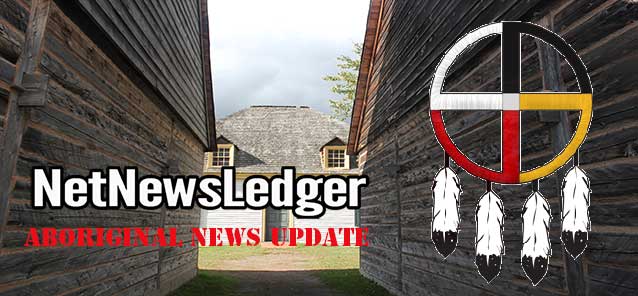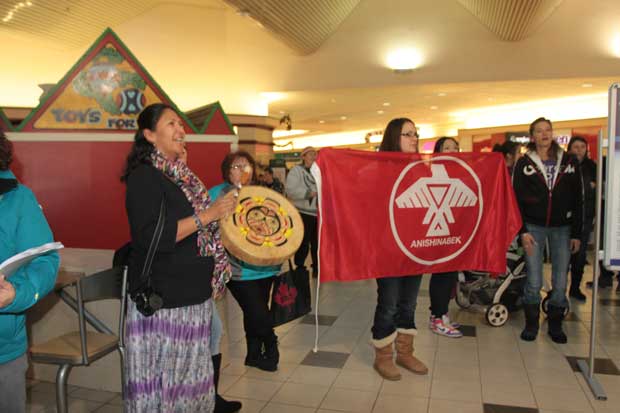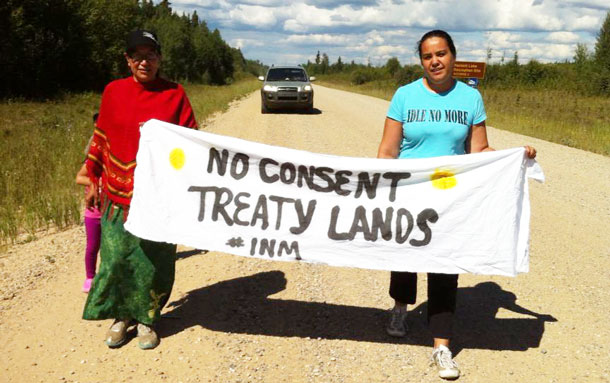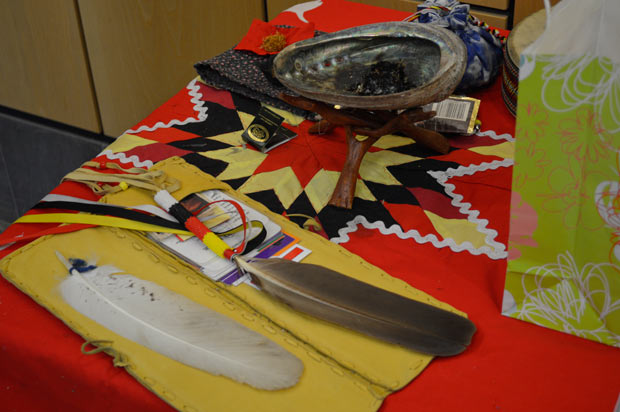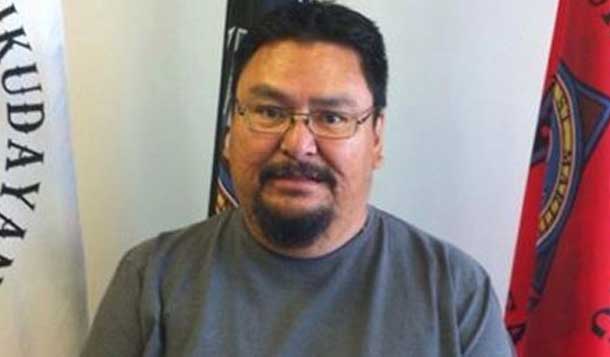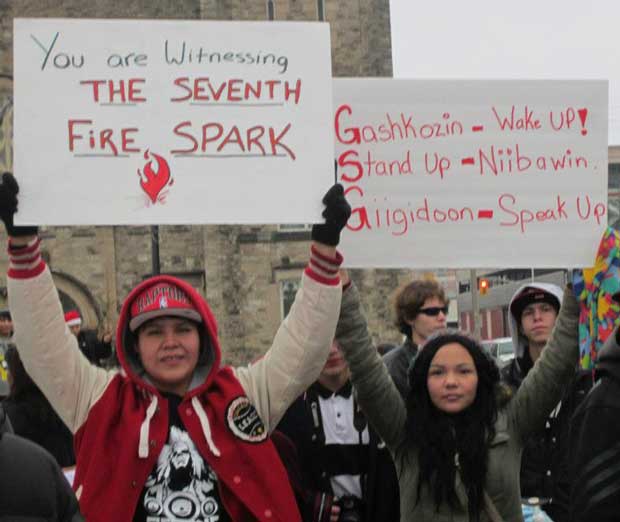 THUNDER BAY – “What it’s doing is, like the rest of our budget, it’s focusing on being able to create jobs and growth and prosperity for all Canadians and that includes our First Nations — these changes don’t alter treaty rights or any land claims processes at all,” stated the Conservative MP for Wildrose. Blake Richards made the comments following an Idle No More rally in Morley Alberta that the Stoney First Nation held.
THUNDER BAY – “What it’s doing is, like the rest of our budget, it’s focusing on being able to create jobs and growth and prosperity for all Canadians and that includes our First Nations — these changes don’t alter treaty rights or any land claims processes at all,” stated the Conservative MP for Wildrose. Blake Richards made the comments following an Idle No More rally in Morley Alberta that the Stoney First Nation held.
The comments by Richards are the complete opposite view from those being raised by Aboriginal groups across Canada right from the grassroots Idle No More to the National Chief of the Assembly of First Nations. It also seems counter to what Lillian Eva Dyck spoke of in the Senate on December 13th.
“Bill C-27 is yet another piece of legislation that this government is pushing through the legislative process without any prior consultation and accommodation with First Nations. As such, it has only proven to add to the deteriorating relationship between the federal government and First Nations across Canada. This deteriorating relationship has been exemplified everywhere lately — from the frustrated chiefs who tried to gain entry into the other place last week, to the thousands of First Nations youth who have gathered in protest and rallies under the “Idle No More” banner, including 500 who rallied outside of Kelly Block’s constituency office in Saskatoon this past Monday”.
Senator Dyck added, “As this bill moves to committee, I would like to point out three problematic issues I see with this bill: one, the duty to consult and accommodate First Nations; two, the scope of financial reporting; and, three, the mechanism for enforcement. Like previous bills affecting First Nations that this government has introduced in this Parliament, the Conservative government has once again failed to carry out its duty to consult and accommodate First Nations on the drafting of the legislation”.
On October 22, 2011 when Aboriginal Affairs Minister John Duncan announced changes to legislation those moves were countered by AFN Chief Shawn Atleo. “We all agree we need to move away from the Indian Act, but any efforts must be led by First Nations and done with First Nations, not for First Nations. Moving beyond the Indian Act is about ending unilateral approaches by government and supporting and empowering First Nation governments to drive solutions in ways that respect and implement their rights, responsibilities and decision-making. This work must be done on First Nations’ terms”.
“This proposed legislation contains a number of piecemeal amendments to the current Indian Act. Tinkering with the existing Act continues the ways of the past whereas First Nations want to move forward based on their rights and responsibilities,” the National Chief continued.
In January 2012, Kenora Rainy River MP Greg Rickford stated, “Increasing Aboriginal participation in the economy is the most effective way to improve the well-being and quality of life of Aboriginal people in Canada. It is also important to Canada’s future economic prosperity.”
Timmins James Bay MP Charlie Angus has stated on numerous occasions that the Conservative government has attempted, in Attawapiskat to ‘hold the community hostage’ over funding issues. Last spring as the academic year ended for students from Attawapiskat, funds from the federal government were being withheld. There are concerns that under Bill C-27 as a tool to enforce compliance the government is seeking to put those measures into legislation, again without having followed the consultation process.
13(1) If a First Nation is in breach of any duty imposed on it under sections 5 to 8, the Minister may take one or more of the following measures:
(a) require the council to develop an appropriate action plan to remedy the breach;
(b) withhold moneys payable as a grant or contribution to the First Nation under an agreement that is in force on the day on which the breach occurs and that is entered into by the First Nation and Her Majesty in right of Canada as represented by the Minister, solely or in combination with other ministers of the Crown, until the First Nation has complied with its duty; or.
(c) terminate any agreement referred to in paragraph (b).
Senator Dyck stated in debate, “Honourable senators, clauses 13(1)(b) and 13(1)(c) are simply wrong. Withholding or terminating funds for non-compliance could result in the federal government failing to meet its constitutional obligation to provide essential services to First Nation Canadians. If an issue exists with a First Nation’s chief and council not being compliant with Bill C-27’s reporting requirements, it is outrageous that the mechanism of enforcement would be to cut off funding to the entire First Nation, which would hurt the entire First Nation community. The clause as currently written makes all grants and contribution agreements vulnerable to the funding being withheld or terminated, including funding for education, health, water infrastructure and housing”.
There appears to be a growing gulf between First Nations people, leaders and the federal government. Idle No More has been a Teach In and educational process in most of the rallies. If the government continued its process of not engaging with First Nations, it is difficult to know what the impact of those actions will be.
James Murray


